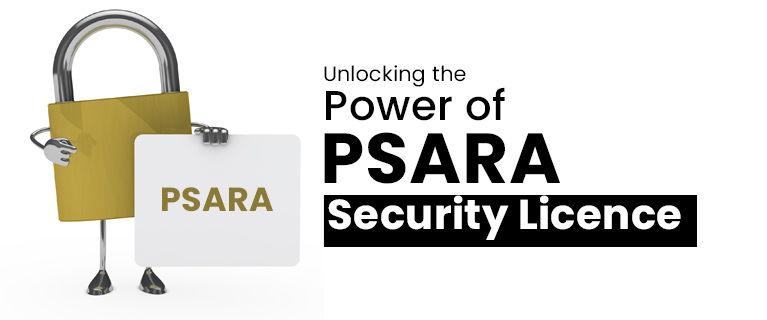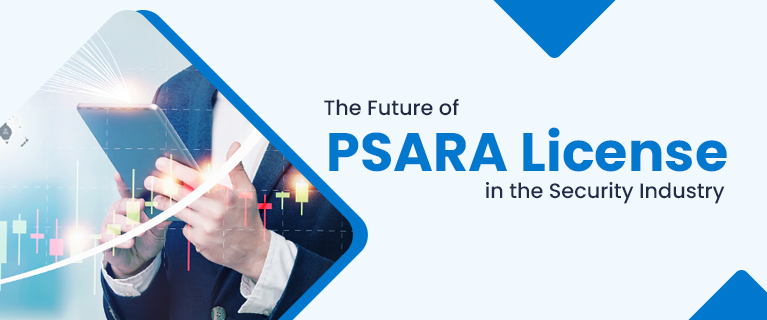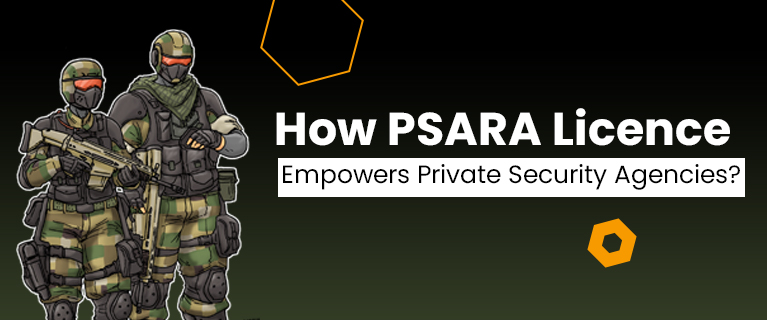Unlocking the Power of PSARA Security Licence
In today's dynamic and ever-changing world, security is a top priority for individuals, businesses, and governments alike. With an increasing emphasis on safeguarding assets, people, and information, the security industry has grown exponentially. To maintain the highest standards of security services, the Private Security Agencies Regulation Act (PSARA) was enacted by the Indian government. In this blog, we will delve into the concept of the PSARA security licence, exploring its significance, requirements, and the benefits it offers to the security industry.
Understanding PASARA Security Licence
In 2005, the Indian government introduced The Private Security Agencies Regulation Act (PSARA) to control and monitor the work of private security agencies in the country. The act aimed to maintain the quality and professionalism of security services by establishing stringent guidelines for operating private security agencies.
The PSARA security licence is a crucial requirement for any individual or entity seeking to provide security services to clients in India. It acts as a legal validation and ensures that the security agency operates within the ambit of the law while maintaining the highest standards of service.
Read also this -: How does the PSARA Security License Safeguard the SocietyApplication Process for Obtaining PASARA Security Licence
1. Document Preparation
The first step in obtaining a PSARA security licence is to gather all the necessary documents required for the application process. These documents play a crucial role in validating the authenticity and credibility of the private security agency. Proof of the agency's legal registration, such as the Certificate of Incorporation or the Partnership Deed, depending on the type of entity. Documents that demonstrate the agency's financial stability and its ability to meet the minimum capital requirement set by the state government. Information about the agency's office space, communication systems, and security equipment, ensuring that the agency has the necessary resources to provide efficient security services. Certificates indicating that the security personnel employed by the agency have undergone the requisite training as mandated by the PSARA Act.2. Application Form
Once all the required documents are assembled, the next step is to obtain the prescribed application form from the respective state government's official website or the designated authority responsible for granting PSARA Security licence. This application form serves as a formal request to obtain the PSARA security licence.The application form may seek essential information about the agency, its key personnel, the number of security personnel employed, the types of services offered, and any previous experience in the security industry.3. Submission of Documents
After filling out the application form with accurate and complete information, the agency must attach all the necessary documents as per the requirements specified in the form. Any missing or incomplete documents can delay the processing of the application. Once all the documents are compiled, the completed application form, along with the necessary fees, should be submitted to the licensing authority. The fees vary from state to state and depend on the size and scale of the agency.4. Verification Process
Upon receiving the application, the licensing authority initiates a thorough verification process to validate the information provided by the agency. This verification process involves background checks of the agency and its key personnel. The agency's legal status, financial stability, track record, and reputation in the security industry are scrutinised during this phase. Additionally, the licensing authority may verify the training and qualifications of the security personnel employed by the agency.5. Inspection of Infrastructure
As part of the verification process, the licensing authority conducts a physical inspection of the agency's infrastructure and equipment. This inspection ensures that the agency meets the prescribed standards and possesses the necessary resources to deliver effective security services. The authority assesses the office premises, communication systems, security equipment, and other facilities. Compliance with safety regulations and adherence to the PSARA Act's guidelines are closely evaluated during the inspection.6. Issuance of Licence
If the agency successfully meets all the eligibility criteria and passes the verification and inspection processes, the licensing authority grants the PSARA security licence. This licence is a formal legal authorization for the agency to operate as a private security agency in the designated state. The PSARA security licence typically includes details such as the agency's name, registration number, validity period, and any specific conditions or restrictions imposed by the licensing authority. It is essential for the agency to maintain the validity of the licence and comply with any conditions outlined in it to continue its operations legally. Read also this -: The Future of PSARA License in the Security IndustryConclusion
The PSARA security licence plays a vital role in the private security industry by upholding quality, professionalism, and accountability. Security agencies that obtain the licence are recognized as competent and trustworthy service providers, attracting clients and business opportunities. By adhering to the eligibility criteria and following the application process diligently, security agencies can unlock the potential of the PASARA security licence and establish themselves as key players in the security ecosystem.
As security remains a top priority for individuals, businesses, and governments, the demand for licensed and regulated security services will continue to grow. Obtaining a PASARA security licence not only ensures compliance with the law but also positions security agencies as partners in safeguarding assets, people, and information, contributing to a safer and more secure society.




Comments
Post a Comment